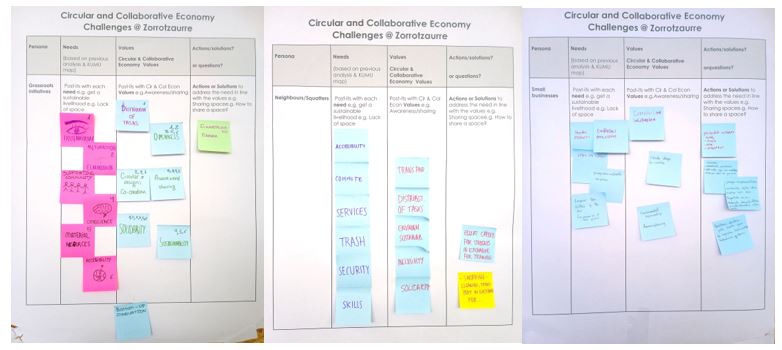Temporary activities can play a key role in mediating conflict and addressing actual citizens’ needs in urban regeneration processes. Such processes come with large expectations but also with equally significant tensions, as they instigate conflicting interests among the involved actors. Innovative bottom-up solutions can mitigate these tensions by providing solutions that bring different actors together. For instance, circular and collaborative economy initiatives can create mutually beneficial loops among various local stakeholders, while strengthening the community and creating more environmentally friendly consumption habits.
Zorrotzaurre, a regenerating post-industrial area in Bilbao and one of T-Factor’s pilot projects, portrays the complex reality of urban regeneration processes. The area faces numerous challenges related to urban decay and low levels of urbanization, such as high rates of poverty and unemployment, housing precariousness, poor accessibility and issues related to safety and cleanliness. It also faces challenges related to the ongoing regeneration of the area, including evictions and potential gentrification of the neighborhood. Nevertheless, the area also has great assets, such as a very dynamic creative industry and an active and self-organized community.
In this context, 22 Global Digital Humanities students at Mondragon University are working on developing circular and collaborative economy solutions to address some of the challenges brought about by urban decay and the regeneration process.
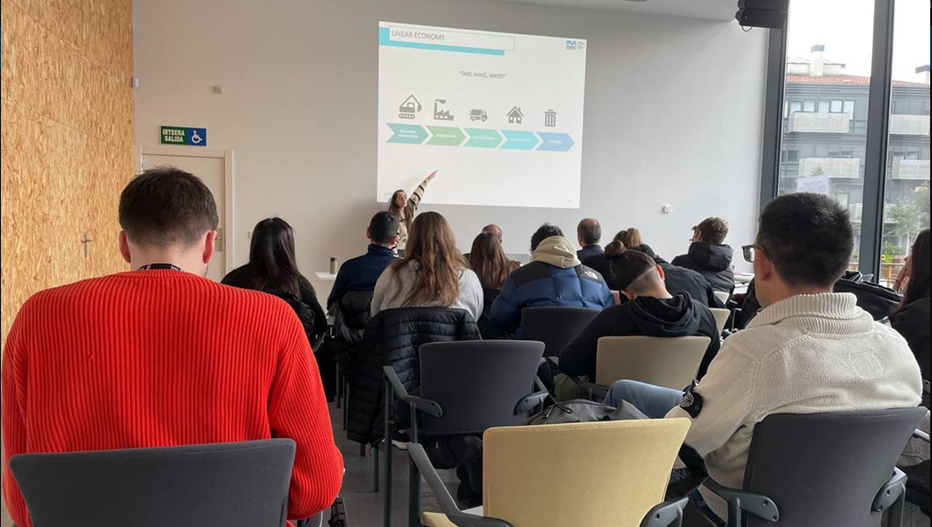
On January 26, Mondragon University, Tecnalia and Universitat Oberta de Catalunya organized a workshop in Zorrotzaurre, aiming at supporting students to identify collaborative and circular economy solutions to the local needs. They did so by focusing on three of the seven ‘personas’ they had identified by carrying out interviews during their diagnosis of Zorrotzaurre; each persona represents a type of stakeholder in the area. The three selected ‘personas’ were: Small local businesses; residents, including squatters; and grassroots organizations. These three ‘personas’ were selected for being those in greater need for support from a project like T-Factor.
Students worked in three groups, each focusing on the specific needs of one of these ‘personas’. Departing from their specific needs, students identified potential solutions that applied values from a circular and collaborative economy perspective such as openness, inclusivity, solidarity, environmental conservation and responsible consumption. In this exercise, each group focused on the needs of their assigned ‘persona’ and tried to address them with the support of the other ‘personas’. Through this approach, the latter became the ‘means’ to meet the assigned ‘persona’s needs.
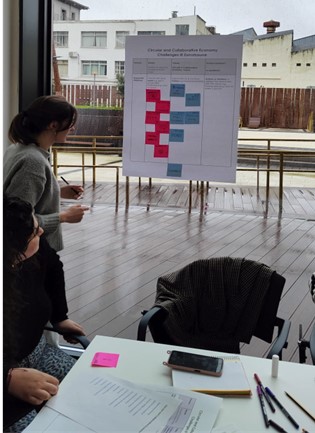
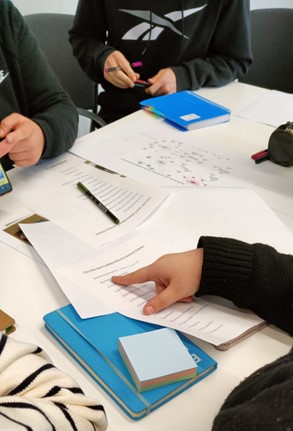
In moving from needs to solutions, students' initial approach changed when they started to consider bottom-up and temporary solutions. Understanding that their goal was to deal with the urgency of the present, while the government's plan continues to focus on long term and stable regeneration, allowed students to think of much lighter and alternative solutions. The proposed solutions can be grouped into three categories.
Some proposed solutions focused on increasing Zorrotzaurre’s visibility through popular events related to a new local industry to produce recycled items. Examples included a canoe race and an open-air cinema with their linked recycled canoes and puff-making industries. These events would not only support these emerging circular economy industries, but would also attract people to the area to support the local businesses and creative industries.
A second group of solutions focused on sharing or swapping resources for different purposes. An example of this is a system for unemployed people or other people in need to donate their time to community services, such as cleaning or transporting stuff, in exchange for donated items, food or access to a local service that they cannot afford. Other examples were a resource-sharing facility for grassroots organizations and local businesses to share and exchange goods and a system for university students to upskill local residents in exchange for university credits.
Lastly, a suggested solution combined creating visibility with the concept of sharing or swapping resources. This was a system to swap community services for drinks at local bars. The idea was to increase visibility while addressing some of the area’s challenges.
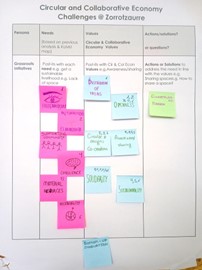
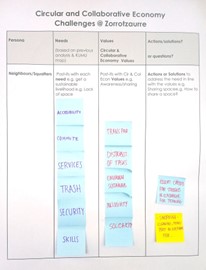
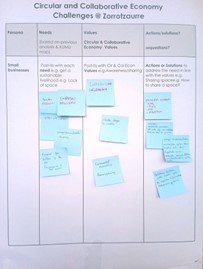
In the coming months, Mondragon students will continue developing some of these ideas. Ultimately, one idea will be selected and prototypes will be built with the participation of local stakeholders. The T-Factor project will also be part of this process with the involvement of several partners.
Stay tuned!
